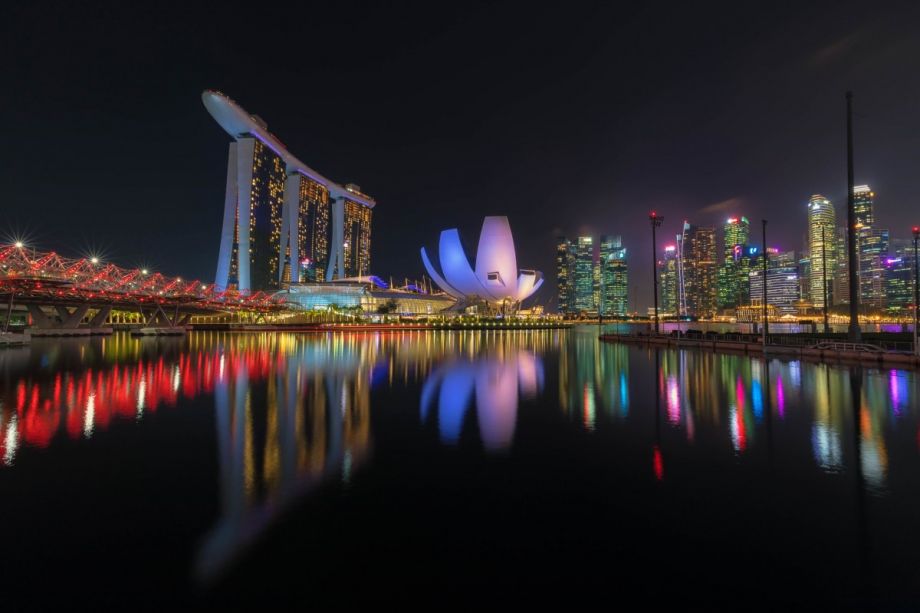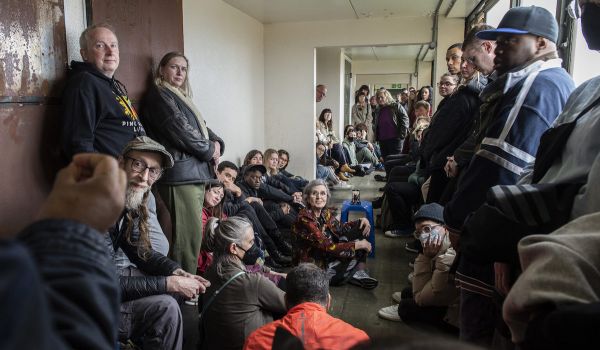Our weekly “New Starts” column of new and newsworthy transportation projects worldwide.
Singapore, Malaysia Press Pause Button on Cross-Strait Metro Project
A plan in the works to build a new underground metro line connecting Singapore and Malaysia across the Straits of Johor has been switched onto a siding while the two governments figure out whether they can afford it.
According to a story in Metro Report International, the two governments issued a joint announcement May 21 agreeing to suspend the project. Singapore went on to say that it agreed to the suspension “at Malaysia’s request and in the spirit of bilateral co-operation.”
A new, more cost-conscious national government took power in Malaysia after elections in May of last year. The government of Prime Minister Mahathir Mohamad has reviewed two big-ticket rail transport infrastructure projects since then. It asked Singapore to postpone one and renegotiated the other to lower project costs.
In their joint statement, the two governments acknowledged the continued need for more and better transportation options between the city-state of Singapore and Johor Bahru in Malaysia. The current international causeway sees 300,000 crossings a day, and an existing rail shuttle service can carry only 300 passengers per hour in each direction. In the statement, the two countries pledged to discuss other “sustainable and affordable” ways to alleviate congestion at the border crossings.
The metro project would greatly improve the carrying capacity of rail service between the two cities: The proposed RTS Link line would carry 10,000 passengers per hour in each direction. The plan called for the line to be designed, built, owned and operated jointly by Prasarana of Malaysia and Singapore Mass Rapid Transit (SMRT), with operations beginning in 2024.
The announcement puts the metro project on hold until Sept. 30 while the governments determine whether they can re-engineer its price tag. Malaysia will pick up the tab for the costs of the suspension. If it decides not to continue with the project beyond that date, it will also reimburse Singapore for money it has already spent to fulfill the bilateral agreement the two countries signed in January 2018.
Two European Transit Agencies Place Big Orders for Fuel-Cell Vehicles
Hydrogen fuel cells hold promise as a low-carbon solution for powering electric multiple-unit trains and electric buses. Two large orders placed by transit agencies in Germany and Britain should speed the adoption of the technology by more transit systems.
The larger of the two orders comes from Fahma, the rolling stock subsidiary of the Rhine-Main Transport Authority (RMV) in Germany. The International Railway Journal reports that the company has placed a €500 million (US$558.48 million) order with Alstom and Infraserv Höchst to build, maintain and service 27 fuel-cell multiple-unit trainsets. The new trainsets will replace diesel multiple-unit trains on four regional rail lines in the Taunus region, north of Frankfurt am Main, beginning in 2022. Alstom will build the trains for €360 million (US$402.1 million) and will also supply the hydrogen in cooperation with Höchst, which will maintain the refueling facility at its industrial park in Frankfurt. The two firms will maintain and refuel the vehicles for 25 years at a cost of €140 million (US$156.37 million).
The state minister of transport in Hessen, Tarek Al-Wazir, noted that because the local rail transit network in the region is not electrified, the purchase would put a significant dent in both greenhouse gas emissions and soot from diesel exhaust.
The more groundbreaking of the two purchases comes from Transport for London (TfL), which will place the world’s first fuel-cell double-deck buses in service starting next year. The £12 million (US$15.19 million) order placed with Wrightbus will put 20 fuel-cell double-deckers in service on three London bus routes, according to a Metro Report International story. TfL said that the buses would also have USB charging ports on board, making bus travel “even more attractive.” Wrightbus will also supply the refueling facility for the buses.
TfL is taking a lead role in a pan-European project known as the Joint Initiative for hydrogen Vehicles across Europe (JIVE). Its goal is to bring down the cost of hydrogen-powered buses by buying them in bulk across multiple agencies. JIVE aims to place 139 fuel-cell buses and the associated fueling infrastructure in service in five European countries.
Local Business Groups Band Together to Call for More Money for Local Transit
Another Infrastructure Week has come and gone in the United States, and in its wake, there appears to be no greater commitment on the federal government’s part to supply the $2 trillion infrastructure spending advocates say is necessary to bring the nation’s roads, bridges and urban transit systems back up to snuff.
That may not be a bad thing, argued Beth Osborne, director of Transportation for America (T4A), in a May 14 Washington Post op-ed. As long as much of that money goes towards building new roads instead of repairing existing infrastructure in a one-time spending spree, she says, we won’t get the better transportation network and smarter transportation planning we need.
This week, the Washington-based advocacy group Osborne heads announced that a coalition of 25 local chambers of commerce and related business groups have formed a coalition to advocate that some of that Federal infrastructure spending go toward better urban mass transit. The announcement on T4A’s blog noted that business leaders in a number of cities have rallied to support new streetcar and bus rapid transit lines and cited the recent requirement that “access to mass transit” in Amazon’s call for HQ2 proposals as evidence that businesses recognize the role better mass transit plays in promoting local economic growth.
The 25 chambers of commerce that form the initial membership of “Chambers for Transit” are located in 19 metropolitan areas from coast to coast. Cities represented range in size from Dallas to Eugene, Oregon.
In its report on the announcement, Streetsblog USA noted that the local chambers’ call for more transit funding runs counter to the U.S. Chamber of Commerce’s growing alignment with the Republican Party and the conservative political movement. In its article, Streetsblog noted that local chambers don’t necessarily adhere to the national organization’s agenda, and chamber leaders in several cities have backed and continue to back plans to build and expand rail transit. For example, Dave Williams of the Metro Atlanta Chamber of Commerce told Streetsblog, “Our roads are congested today, and we’re going to add over 2.5 million people in the next 20 years, mostly in our existing suburbs. We have to provide our residents with more transportation options to access employment centers, healthcare, education and other community institutions.”
Know of a project that should be featured in this column? Send a Tweet with links to @MarketStEl using the hashtag #newstarts.
EDITOR’S NOTE: This article originally incorrectly identified Transportation for America as a lobbying, rather than an advocacy, group. We’ve corrected the error.

Next City contributor Sandy Smith is the home and real estate editor at Philadelphia magazine. Over the years, his work has appeared in Hidden City Philadelphia, the Philadelphia Inquirer and other local and regional publications. His interest in cities stretches back to his youth in Kansas City, and his career in journalism and media relations extends back that far as well.
Follow Sandy .(JavaScript must be enabled to view this email address)









